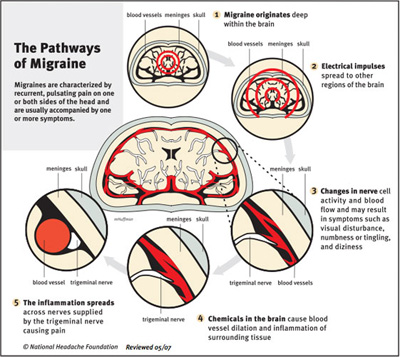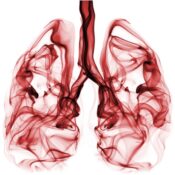As if having migraines wasn’t enough to worry about, a new study shows that the debilitating headaches may double one’s risk of having a heart attack—even though the overall risk remains low.
The new data are consistent with previous research showing that people with migraines also tend to suffer from conditions that are risky to their hearts—diabetes, high blood pressure, obesity, and high cholesterol.
“Our results provide another reason for people with migraines to reduce other risk factors for heart disease,” said study investigator Marcelo E. Bigal, M.D., Ph.D., with Merck Research Laboratories and the Albert Einstein College of Medicine in Bronx, New York.
In the study, researchers surveyed 6,102 migraine sufferers and 5,243 healthy volunteers about headaches, treatment, general health, and any diagnosed heart problems. Findings show that 4.1 percent of those with migraines reported having a heart attack, compared to 1.9 percent of the control group.
Yet to be discovered is the precise role of migraines in the development of cardiovascular disease, and whether drug therapy to prevent migraines or blood clots might help protect the health of migraineurs.
Dr. Bigal’s study is published in the February 23, 2010, print issue of Neurology® <http://www.neurology.org/>.
Become a Saturday Evening Post member and enjoy unlimited access. Subscribe now




Comments
Naturally you have heard that some of the key difficulties with childhood obesity and health concerns that surround this epidemic are alarming. You most likely know that as concerned parents we should alter the behavior of our youngsters.
I wonder if migraines could be caused by some type of blockage in some part of the body. It could be a warning of a clot or high blood pressure.